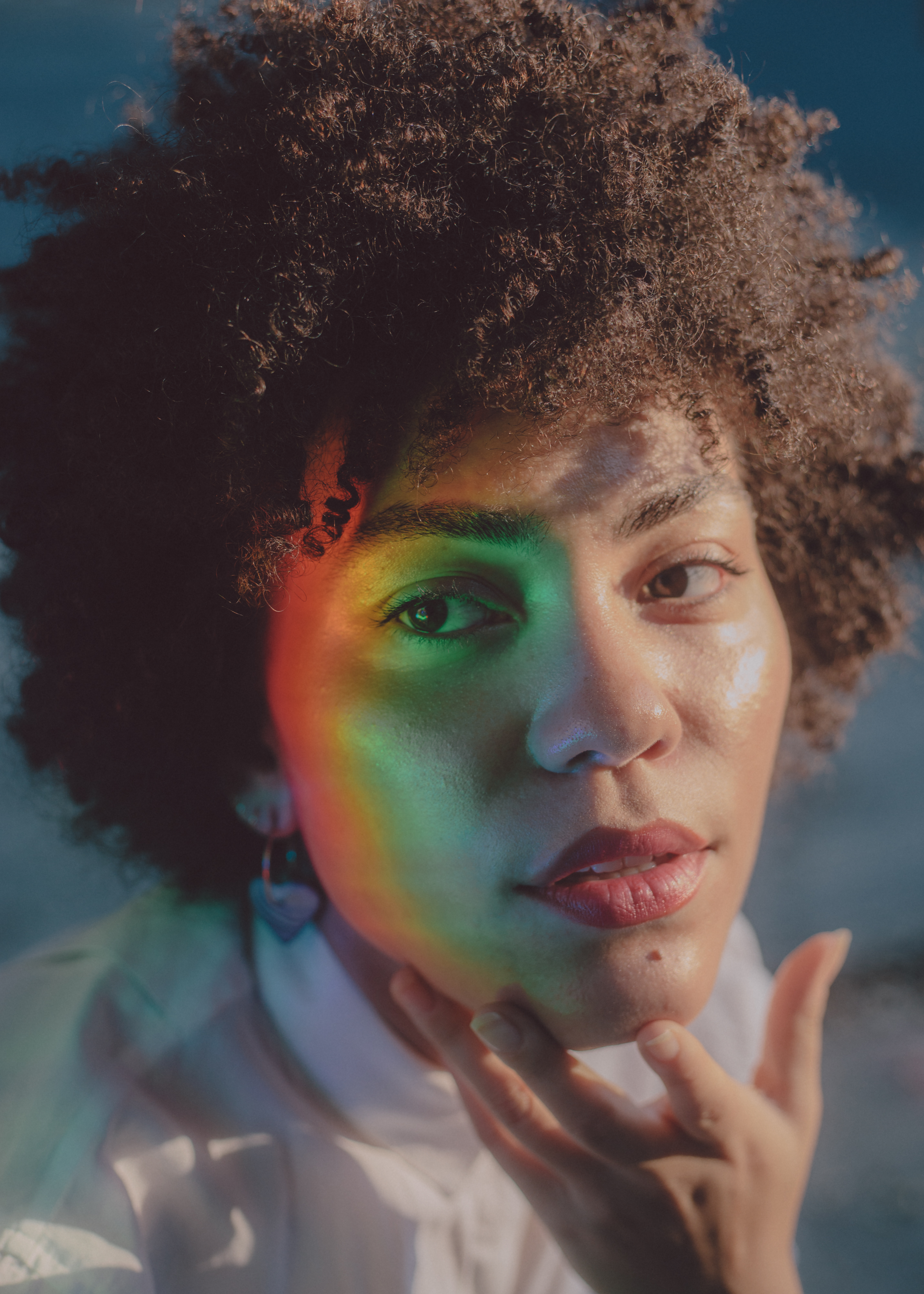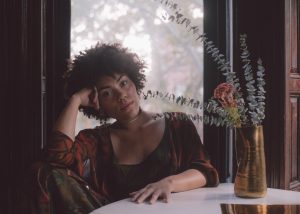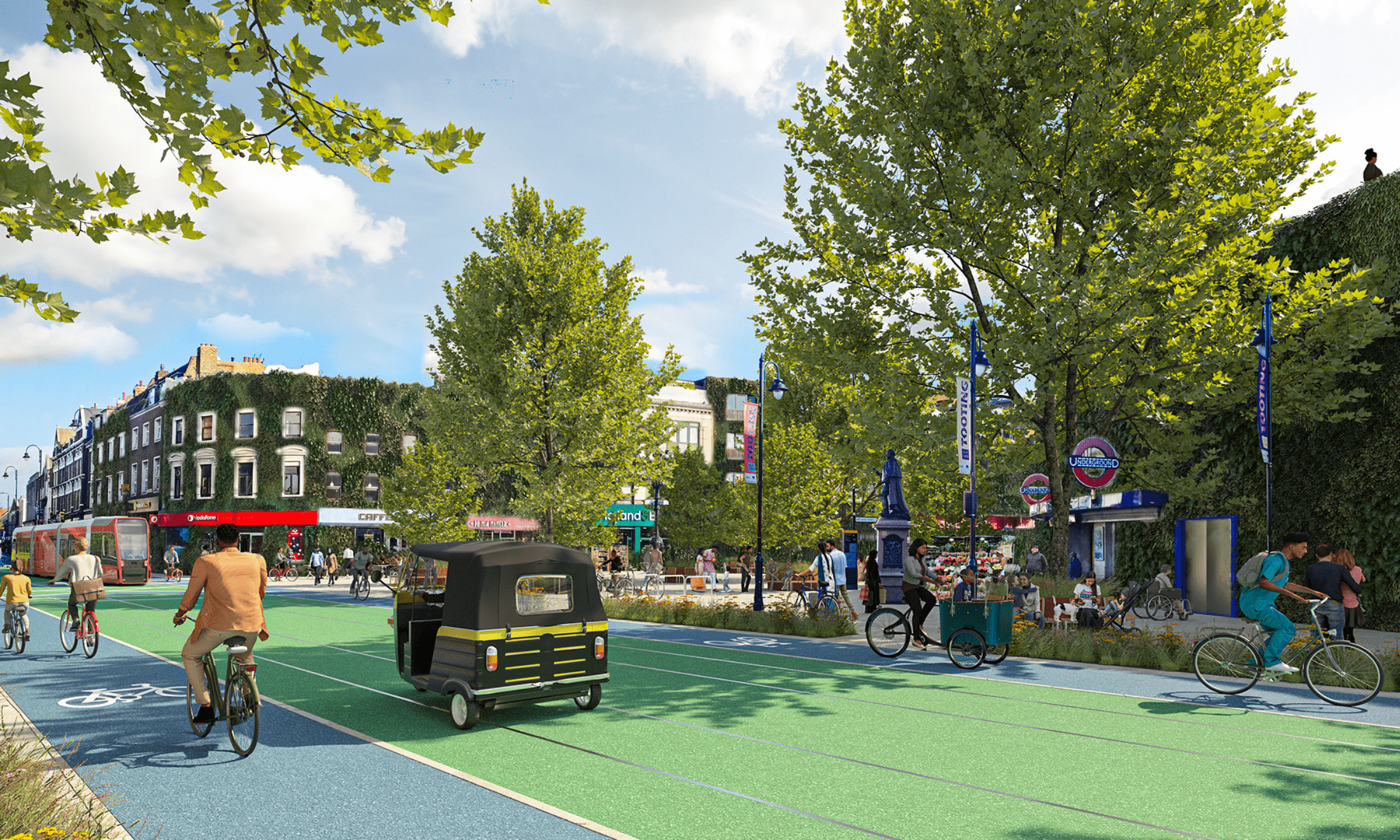
Brooklyn-based singer-songwriter Madison McFerrin is a force: the sultry layers of harmony she builds plant roots and somehow envelop you with comfort. Chatting with us ahead of her debut London show at The Waiting Room this week (Thursday 8 November), McFerrin talks vulnerability, spirituality and spreading joy on her first-ever European tour. Her ethereality and commitment to self-love through a cappella compositions are inspired: whether it’s through sensual single ‘Insane’, an undying ode to a lover, or her commentary on the temporality of black life in ‘Can You See?’. Madison McFerrin’s soulful music is as heart-heavy as it is healing, creating a home for both herself and her audience.
How would you describe your sound? If you could visualise it, what colour would it be?
Currently I describe my sound as a cappella soul. Questlove called it “soulappella” while my dad [world renowned jazz vocalist Bobby McFerrin] and I were on his podcast Questlove Supreme, which I also thought was fitting. I feel like my music comes across in shades of blues and purples and wave-like in essence, which I think comes from the layering and how my songs build live.
How much do locations influence the music that you make?
I’m influenced by every place I go. Music is such a universal connector, so it’s hard not to be influenced by the world around me, regardless of where I am. Brooklyn has definitely inspired me, it’s where a lot of my community is at the moment and, energetically speaking, that’s probably my biggest source of inspiration.
Do your EPs feed into an overarching story and is there a narrative that inspires your sound right now?
They are not so much of a narrative arc as they are a collection of feelings. I made ‘Finding Foundations’ a series so that I could have an umbrella to release a cappella music whenever I please, regardless of how my music evolves. The voice is the foundation of my legacy, from my father, to his father (the first African-American to sign a contract with the Metropolitan Opera) and mother, to their parents, and the endless generations beforehand. Singing is such an intrinsic part of how we as black people have overcome, it’s part of our foundation. This is a small way of honouring that.
How much do you think your upbringing influenced your love of music and the style of your art?
I wouldn’t be who I am without my upbringing, it influences every aspect of my life. I grew up in a house filled with music, so there was no escaping. It connected us all as a family, our answering machine is even a homemade jingle of us all singing. There are countless memories, like my dad playing African music and dancing with me when I was little, dancing to James Brown in my kitchen, or my brother Taylor playing ‘My Cherie Amour’ on his Walkman for me. Music is the McFerrin’s happy place.
Ntozake Shange passed on last week. She had a real ability to make black girls and women feel seen because the honesty and personality of her words: painful but healing and beautiful in the reparation. I think the same feeling is evoked when I listen to your music.
That means a lot to me, thank you. Singing, writing, and performing are definitely my safe spaces, and I’m very conscious of making that the case for my audience as well. I only want to spread joy through my music, even through songs of sadness or anger. Having a safe space is sacred, and it’s important for my audience to feel and know that. It’s collective healing.
There is an openness and immersiveness to your sound, especially live. How do you think your openness (and vulnerability) helps you build a rapport with your audience?
I am probably my most vulnerable self onstage; it feels as if it’s my duty. If you see someone else being vulnerable, it helps you do the same. I’m not trying to give people the impression that I have my shit together all the time, or that I’m flawless — that serves no one but my own ego. If we know we’re not alone in our fears, then we can help overcome them together. There’s such an emphasis on portraying this perfect identity, and that simply isn’t reality. I want everyone to know that I have doubts and fears just like they do.
Singing inherently makes my heart happy, which makes me feel held. I only ever want my audience, particularly black people, to feel that way. There is so much in the world (particularly in the US) that tells us that we as black people don’t deserve to be held, I use my music to share the exact opposite sentiment.
As a one-woman chorus, do you think there is something inherently spiritual about relying solely on your voice?
Singing is how I practice my spirituality, so it’s incredibly sacred to me. I had so much self-doubt before starting my solo career, so singing with just myself means that I have to trust myself completely; it’s probably the only place where I actually do that. Allowing myself to trust in that way helps me grow and helps me heal, which is something I’ve really needed since graduating college in 2014.
Have you had some time to experience London yet?
I have not! I’m very excited to perform in London, apparently it’s the city outside of the U.S. with the most people listening to my music! And there seems to be a really interesting artistic community there, like the musicians from Jazz Refreshed. I actually went to a pre-college program with Nubya Garcia, so it’s been super cool to see our paths cross again 9 years later. I’m also super into all of the music Shabaka Hutchings is doing, there’s such vitality to it that I find incredibly inspiring. Events like the recent Black Girl Fest, publications like gal-dem and groups like We Are Here UK that I’ve discovered digitally also make me eager to get to know more about the different communities uplifting women of colour around the London. I have a feeling there’s going to be a really awesome vibe in the room.
The most time I’ve spent in London was back in 2007 when my dad had a couple of shows at the Barbican. There was one performance where my dad did this improv where he just repeated the line “walkin’ up the stairs, bacon and eggs,” and he eventually fell out with uncontrollable laughter (which he tends to do). The dude can be pretty wacky sometimes.
Who do you sing for?
I’m continuing the tradition of singing for the ones who came before me, the ones who are with me, and the ones who will follow. In the same way that Abbey Lincoln didn’t know her performance on ‘Prayer/Protest/Peace’ would impact how I perform ‘Can You See?’ I don’t know how a song like that will continue to impact folks in the future.
Touring the world with my own music is something I’ve dreamt of doing my entire life, I’m incredibly grateful to be living it in this moment. And it was my birthday last week, so I think that’s a pretty awesome birthday present!
Madison McFerrin plays The Waiting Room on Thursday 8th Nov. Tickets available here.









